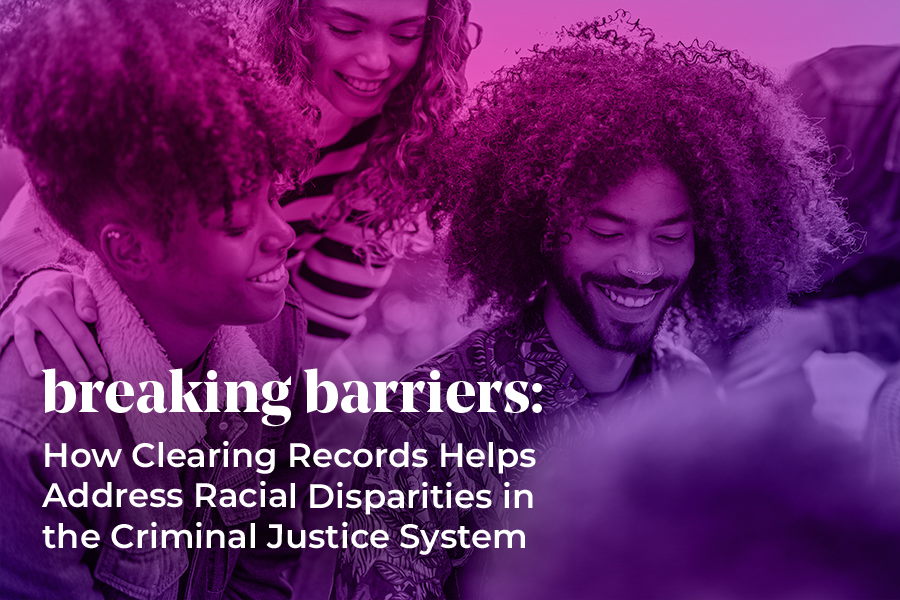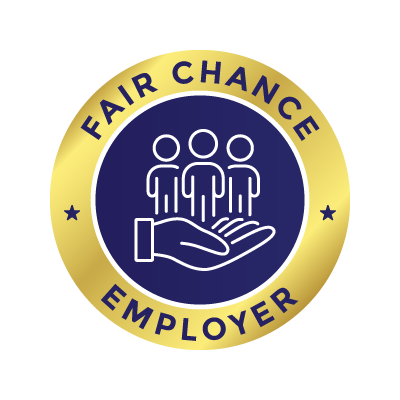Black History Month is a time to reflect on the struggles and triumphs of Black Americans throughout history. It is also an opportunity to address the systemic injustices that continue to disproportionately impact Black communities today. Every Black History Month, we reflect on the sad reality of the racial disparity in the criminal justice system. Half of all Black men will be arrested by age 23, and research shows that Black Americans are more likely to receive harsher sentences. , Even after serving their time, many continue to struggle with the consequences of a criminal record, which can prevent them from securing jobs, housing, and education.
A criminal record is more than just a legal issue—it is a barrier to opportunity. Millions of Americans face discrimination because of past arrests or convictions, even when they have turned their lives around. The good news is that clearing someone’s record can help break these barriers and create a path toward economic and social equity. Recent legal changes have made it easier to access expungement, offering a second chance to those who have been unfairly locked out of opportunity.
The Racial Disparities in the Criminal Justice System
For decades, studies have shown that Black Americans are disproportionately impacted at every stage of the criminal justice system. They are more likely to be stopped, searched, arrested, charged, convicted, and sentenced to longer prison terms compared to their white counterparts for similar offenses. This has led to higher incarceration rates and lasting social and economic consequences.
Even for those who are never convicted of a crime, the consequences of an arrest record can be devastating. Many people assume that if their case was dismissed or if they were found not guilty, their record disappears. Unfortunately, that is not the case. Arrests and dismissed charges remain on background checks, creating obstacles that can last a lifetime. A single arrest can close doors to employment, education, and housing.
How Record Clearing Creates a Path Forward
Expungement, sealing, and other forms of record clearance offer solutions for people who have been burdened by a criminal record. The process removes past arrests or convictions from public records, allowing individuals to move forward without the stigma of a past mistake. With an expunged record, people can apply for jobs and housing without fear of discrimination and finally access the opportunities they deserve.
The impact of expungement is life-changing. Studies show that wages increase by 20% within just one year of record clearance. This boost in income allows individuals who have been involved in the criminal justice system to support their families, pursue higher education, and contribute more meaningfully to their communities. Additionally, clearing a record opens doors to better housing opportunities, as landlords often reject applicants with a criminal history. Expungement also helps individuals gain access to professional licenses, making it possible to enter higher-paying careers that were previously out of reach.
Many states are taking action to make expungement more accessible. Utah, for example, passed a Clean Slate Law, which automatically clears certain records without requiring individuals who have been involved in the criminal justice system to navigate a complicated legal process. Arizona has also simplified its record-sealing process, allowing individuals to begin clearing their records step by step, rather than waiting until all cases become eligible. These policy changes are a critical step toward justice, ensuring that people are not permanently punished for past mistakes.
Beyond Expungement: Other Reforms That Can Reduce Racial Disparities
While expungement is a powerful tool, it is only one piece of the solution. Addressing racial disparities in the justice system requires broader policy changes to ensure fairness at every stage, from policing and sentencing to hiring and housing practices.
For those who do not qualify for expungement or sealing, additional remedies such as Offense Reductions, Certificates of Second Chance or Rights Restoration can offer another path forward. Remedies like these can help people get their civil rights back, improve their record, or shorten the amount of time they must wait until they can clear their record. This can be life-changing for people who are stuck feeling trapped and judged for their record.
What You Can Do to Help
If you or someone you know has a criminal record, now is the time to explore record clearance options. Many people who have been involved in the criminal justice system do not realize they are eligible for record clearance, and new laws have made the process easier and more affordable than ever before. Our eligibility tool can help individuals find out if they qualify and take the first step toward clearing their record.
Beyond personal action, there are ways to support criminal justice reform in your community. Advocating for justice reform, supporting fair chance hiring policies, and pushing for sentencing reforms can make a lasting impact. The fight for racial justice is not just about addressing past wrongs—it is about building a future where everyone has the opportunity to thrive.




